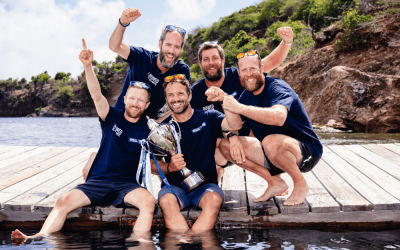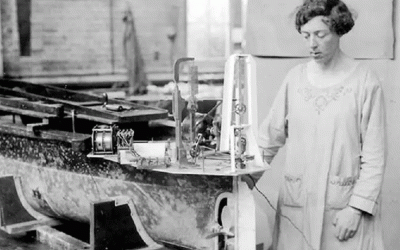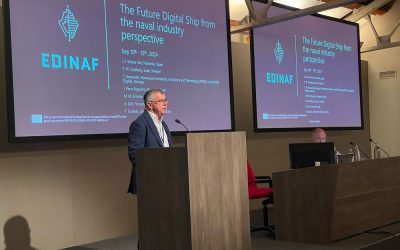Shiprepair & Maintenance: 4th Quarter 2018

A specialist FPSO repair contractor based in Scotland, Marine Technical Limits (MTL), has recently undertaken extensive research and in-house welding trials to better understand welding afloat with a water backing – and its associated challenges – as a solution to this problem. Danielle Milne, mechanical engineer at MTL, says, "The development and application of new techniques and technology is crucial as the industry ventures into further flung locations and deeper water to keep up with the world’s demand for energy."
FPSO units have played a key role in extreme offshore areas for many years. However, harsh offshore environments, vessel motions and production demands can put FPSO structures under stress. Ineffective inspection and maintenance regimes not only negatively impact the safety of the asset but can introduce onerous and unnecessary costs.
MTL has identified that water-backed welding could be a viable solution to the on-site maintenance problems faced by FPSO operators. Milne notes: "As it is not a commonly used or well-established welding process, there is limited classification society code guidance on whether it could be a viable option. But at MTL we empower our team to tackle these challenges, develop groundbreaking concepts, appraise them through rigorous trials and testing, and ultimately deliver them to the market."
MTL’s research into the concept confirmed that water-backed welding creates more demanding conditions compared to conventional welding processes. At the same temperature, the water acts as a greater heat sink than air, which significantly increases the cooling rate of the weld. This rapid cooling results in a harder, more brittle weld that is not considered compliant with welding rules and standards. Therefore, it is not possible to achieve a suitable weld without altering the welding process or introducing pre-heat, a process which is against some classification society rules, during water-backed weld procedure qualification.
A thorough examination of the welding process and the specific alterations required was needed to render this technique feasible. Trials were undertaken using a bespoke welding test tank connected to an industrial water chiller unit, allowing the simulation of the conditions and flow rates found offshore, such as water temperatures below 0°C. Throughout these trials, welding variables such as the welding process, position, technique, consumable and steel composition, as well as environmental conditions, were all examined to understand what impact they would have on weld quality.
Milne says: "By completing a full and thorough schedule of non-destructive and mechanical testing on each weld, we were able to obtain an understanding of the variables which affect the weld quality during water-backed welding. We also identified the specific environmental control measures required to produce an acceptable water-backed weld. By fine tuning the process and the introduction of specific controls for several variables, we were able to conduct successful welding trials which passed all non-destructive and mechanical testing requirements." This was achieved, she points out, without the introduction of pre-heat and therefore avoiding additional challenges to the process.
Using the knowledge gained through its water-backed welding trials, MTL has now requalified some of its conventional weld procedures in order to align welding consumables and processes with the alternative concept by looking at them in-house at the company’s main operational base in Kintare, Aberdeenshire. These qualifications covered both full penetration butt welds and fillet welds in a range of positions, again without the use of pre-heat. These were witnessed and approved in accordance with an internationally recognised welding standards, and in compliance with several Classification Society rules, MTL states.
According to Milne: "By completing the research and trials in-house, we were able to gain a wealth of specialist knowledge of water-backed welding along with a clear understanding of a range of welding codes. This allows us to ensure all of our procedures are tailored specifically to our customer’s project requirements in core business areas."
Practical experience in the field has already been gained, the company adds. MTL has used the process on in-service FPSOs at three separate locations to support the rectification of hull integrity issues.
MTL is a specialist FPSO integrity and repair management company, providing structural integrity management, on-station FPSO repair, naval architectural and equipment solutions.



